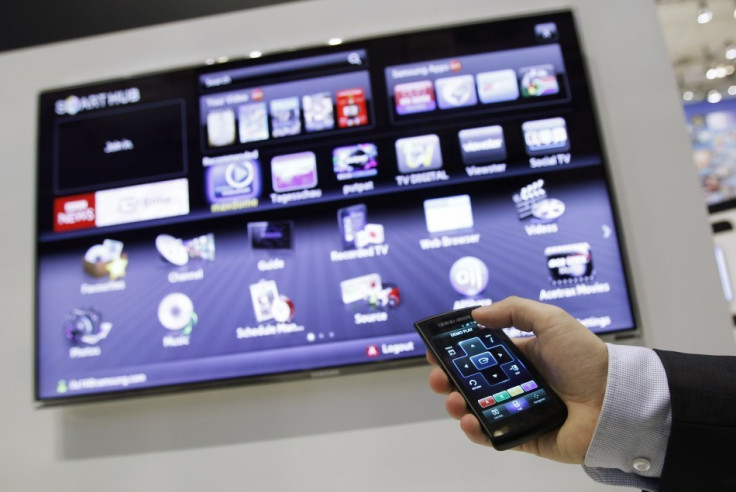Samsung says Smart TV customers are not being spied on, they are just confused

Samsung has addressed the controversy surrounding its Smart TVs privacy policy which made it sound like your television was always monitoring your conversations by telling people they were simply confused thanks to its poorly-worded privacy policy.
Samsung faced a hail of criticism from the media, customers and privacy advocates after it was revealed that the terms and conditions for the company's Smart TVs included the following paragraph:
Please be aware that if your spoken words include personal or other sensitive information, that information will be among the data captured and transmitted to a third party through your use of Voice Recognition.
People described this as being Orwellian in nature, pointing out that it almost exactly matched a passage in Orwell's seminal dystopian novel, 1984, which describes a world of secret surveillance by a totalitarian state.
The problem as Samsung saw it was one of semantics.
While many people interpreted this clause to mean anything they said in front of their television could be recorded and shared with unknown third parties (such as advertisers) this is simply not the case according to the South Korean electronics giant.
In a blog post aimed at clarifying the situation and easing the worries of users, Samsung says it "takes consumer privacy very seriously and our products are designed with privacy in mind."
Nuanced
Samsung says data is recorded and stored using its voice recognition software only when you are using the integrated microphone on the TV's remote control with the data sent to a server in order for voice-to-text translation to take place.
This translation is done by Nuance, which is the "third-party" Samsung was referencing in the original clause in its policy. It also says that it collects what you say in order to "evaluate and improve the features".
The manufacturer also points out that your can turn off the voice recognition feature whenever you want in the Settings menu, though this will mean you won't be able to talk to your television set.
Essentially this is no different to asking smartphone voice services such as Siri, Cortana, or Google to search for something online. Those voice commands are sent to a powerful computer to be processed (Apple also works with Nuance), before being sent back to your phone. This is why Siri doesn't work without an internet connection.
Responsibility
At the end of the day, as more and more devices in your home become smart and allow you to interact with them using voice or gestures, we are going to have to accept that more and more of our personal lives are being digitally recorded and stored.
If we opt in to this, then we have to trust the companies like Samsung will store and use that data only in ways that we would want. Samsung says that everyone using its Voice Recognition had to agree to a separate Samsung Privacy Policy and Terms of Use regarding this function when initially setting up the TV.
The problem is that these terms and conditions are usually so dense and inaccessible most people just tick the box and don't think any more about it.
Companies need to make it crystal clear just what people are agreeing to by highlighting the most important aspects of policies like this, but at the end of the day it's still down to each person to take responsibility for the products they are using.
Here, for those who are interested, is Samsung's reworded policy regarding Voice Recognition:
Voice Recognition
You can control your Smart TV, and use many of its features, with voice commands.
If you enable Voice Recognition, you can interact with your Smart TV using your voice. To provide you the Voice Recognition feature, some interactive voice commands may be transmitted (along with information about your device, including device identifiers) to a third-party service provider (currently, Nuance Communications, Inc.) that converts your interactive voice commands to text and to the extent necessary to provide the Voice Recognition features to you. In addition, Samsung may collect and your device may capture voice commands and associated texts so that we can provide you with Voice Recognition features and evaluate and improve the features. Samsung will collect your interactive voice commands only when you make a specific search request to the Smart TV by clicking the activation button either on the remote control or on your screen and speaking into the microphone on the remote control.
If you do not enable Voice Recognition, you will not be able to use interactive voice recognition features, although you may be able to control your TV using certain predefined voice commands.
You may disable Voice Recognition data collection at any time by visiting the "settings" menu. However, this may prevent you from using some of the Voice Recognition features.
© Copyright IBTimes 2025. All rights reserved.






















